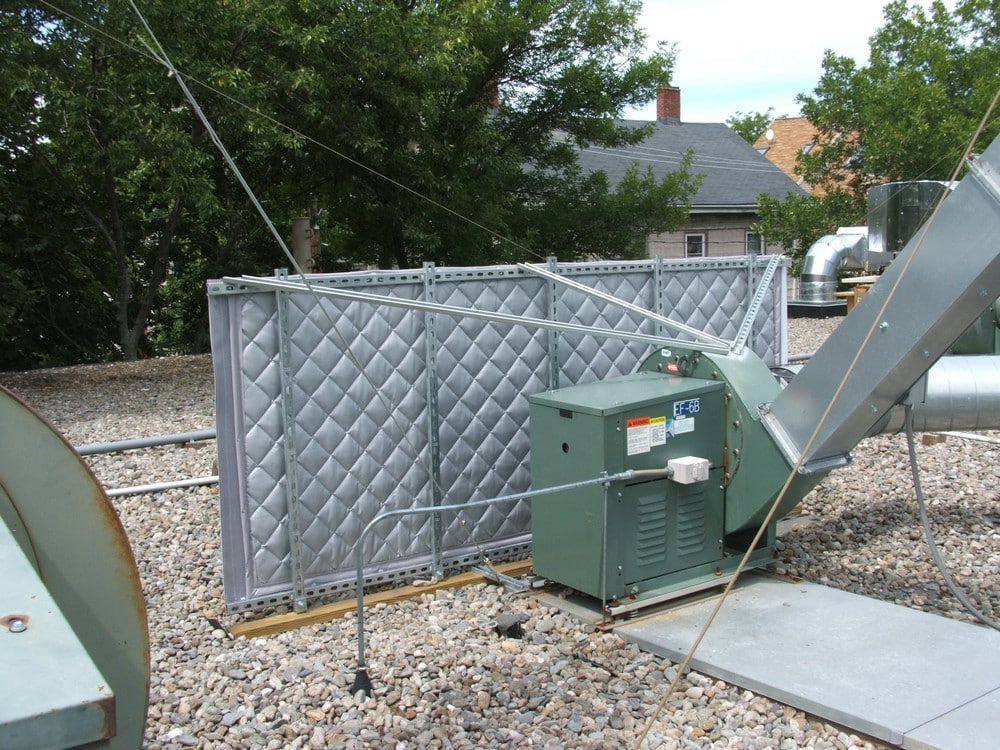In today’s fast-paced world, finding tranquility in our homes and workplaces is more crucial than ever. However, for many of us, persistent outdoor noise can disrupt our peace and quiet. Whether it’s traffic, construction, or loud neighbors, these disturbances can impact our well-being and productivity. To combat outdoor noise pollution, sound insulation solutions play a vital role. In this blog post, we’ll explore the importance of blocking outdoors noise, the science behind sound insulation, and effective strategies to create a quieter, more peaceful environment.
The Importance of Sound Insulation
- Health and Well-Being: Noise pollution can lead to stress, sleep disturbances, and adverse effects on mental and physical health. Sound insulation is essential for maintaining a calm and peaceful living or working environment.
- Productivity: In a noisy workplace, concentration and productivity can suffer. Sound insulation helps create a quieter atmosphere where employees can focus on their tasks without distraction.
- Privacy: Sound insulation is also critical for maintaining privacy. Whether it’s in your home or office, it prevents conversations and activities from being overheard.
- Property Value: Homes and commercial properties with effective sound insulation are often more valuable and attractive to buyers or renters.
The Science of Sound Insulation
To understand sound insulation, it’s important to grasp some fundamental principles of sound. Sound travels through air in the form of pressure waves, which can be absorbed, reflected, or transmitted through materials. When you hear noise from the outside, it’s because the sound waves have traveled through the walls, floors, or windows of your building.
Sound insulation involves preventing these waves from traveling through the structure. This is achieved by using materials and techniques that either absorb or block sound. The effectiveness of a sound insulating material is measured in terms of its Sound Transmission Class (STC) rating. The higher the STC rating, the better the material is at blocking sound.
Effective Sound Insulation Strategies
- Sealing Gaps and Cracks: Start by sealing any gaps, cracks, or holes in your building’s envelope. Sound can easily travel through these openings. Use caulk or weatherstripping to ensure a tight seal around doors, windows, and other openings.
- Upgrading Windows: Windows are a common source of outdoor noise infiltration. Consider upgrading to double- or triple-glazed windows, which provide better sound insulation than single-pane windows. You can also install acoustic window inserts for additional sound protection.
- Acoustic Curtains and Blinds: Special acoustic curtains and blinds are designed to absorb and block sound. They not only enhance your interior decor but also reduce noise transmission through windows.
- Soundproofing Walls: If outdoor noise is a significant issue, consider soundproofing your walls. This can be done by adding an extra layer of drywall with sound-dampening compounds, using acoustic panels, or installing resilient channels that create an air gap between the existing wall and the new layer.
- Floors and Ceilings: Sound can also travel through floors and ceilings. To reduce this transmission, install sound-absorbing materials like acoustic ceiling tiles, acoustic flooring underlayment, or floor rugs with thick padding.
- Door Upgrades: Exterior doors are a common entry point for outdoor noise. To improve sound insulation, choose solid-core doors with weatherstripping seals. Install a door sweep at the bottom of the door to block gaps.
- Acoustic Insulation: When constructing or renovating, use acoustic insulation materials in your walls, ceilings, and floors. These materials are designed to absorb and block sound waves effectively.
- Acoustic Panels: Acoustic panels are an excellent solution for spaces with high ceilings or open floor plans. These panels can be strategically placed on walls and ceilings to absorb sound and improve acoustics.
- Plant Barriers: Outdoor sound can be reduced by adding plant barriers around your property. Trees, hedges, and bushes can help absorb and block noise.
- White Noise and Sound Machines: In some situations, adding white noise or sound machines can help mask outdoor noise. These machines emit a consistent background noise that can make other sounds less noticeable.
- Earplugs and Noise-Canceling Headphones: For immediate relief, you can use earplugs or noise-canceling headphones to block out outdoor noise when you need silence for work, relaxation, or sleep.
Professional Sound Insulation Services
For top-tier sound insulation solutions, you can rely on our custom doors service in Salt Lake City. Our custom doors are designed and built not only to match your aesthetic preferences but also to provide incredible soundproofing capabilities.
By working closely with our team, you can choose the right materials, design, and additional insulating features to achieve the quiet and peaceful environment you aim for. Elevate the look of your property while significantly reducing noise transmission.
Creating a peaceful and quiet environment is essential for our well-being, productivity, and overall quality of life. Sound insulation solutions offer a range of strategies to effectively block outdoor noise and maintain tranquility in your home or workplace. By sealing gaps, upgrading windows, and incorporating acoustic materials, you can enjoy the benefits of a quieter, more peaceful space. Whether it’s for relaxation, work, or sleep, sound insulation can make a significant difference in your daily life. So, say goodbye to noisy disruptions and embrace the serenity of a well-insulated environment.

